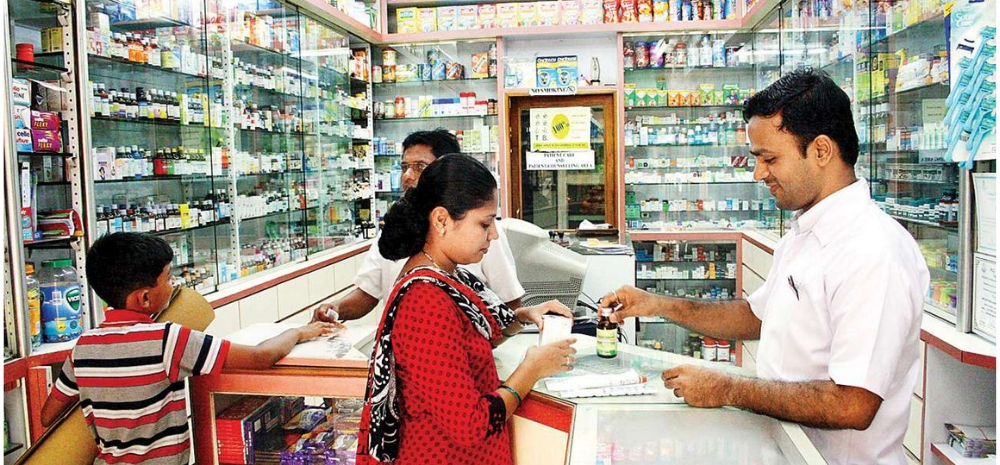Medicine Production, Supplies In India Hit Due To Coronavirus; Drug Price Can Increase

Medicine Production, Supplies In India Hit Due To Coronavirus; Drug Price Can Increase
The Coronavirus Outbreak is causing many issues to the Indian Pharma Industry!
With the import of raw materials used to make drugs halted due to the coronavirus scare in China, pharmaceutical units in the Baddi-Barotiwala-Nalagarh industrial belt of Himachal Pradesh have warned of suspension of production.
Meanwhile, the key raw material supplies are facing a serious disruption since mid-January. Hence some of the medicines of common use may either be short in supply or will witness high costs.
Read to find out more…
Himachal Pradesh: The Leading Pharma Manufacturer in Crisis!
According to statistics tabled in Parliament, in 2018-19, around 67.5% of APIs and drug intermediates in India, worth around $2,400 million, were imported from China.
Himachal Pradesh has more than 300 drug companies, accounting for around 35% of pharmaceutical products in Asia and 60% in India, making it “the largest pharma hub of Asia ”, as per the Himachal Pradesh Department of Industries. The state’s industrial estates cumulatively manufacture around Rs 40,000-crore products in a year.
The Himachal Drug Manufacturers’ Association’s Dr Gupta said nearly half of the around 750 formulation units in Himachal Pradesh are concentrated in the industrial belt. The companies based in Himachal include Sun Pharma, Dr Reddy’s, Morepen, Abbott and Torrent Pharmaceuticals. In terms of revenue generated, Ahmedabad and Mumbai rank after Himachal Pradesh as leading pharmaceutical manufacturers in the country.
While the large units in Himachal have their in-house APIs manufacturing supports for captive use and also have an inventory for at least three months, it is the small players who have been hit hard.
Price Hike and Raw Material Shortages in the Pharma Industry due to Coronavirus Epidemic!
The Hubei province of China, the epicentre of the coronavirus epidemic, is the hub of its ctive pharmaceutical ingredient (API) manufacturing industry. Around 70-80% of API, also called bulk drugs, in India are imported. APIs are key ingredients in the manufacture of medicines.
Last month, the prices of paracetamol, an API used to formulate a commonly used drug of the same name, shot up by 40%. Industry sources said, now the price of paracetamol, has nearly doubled since January, and is now being sold for Rs 450-500 kg.
The cost of methylcobalamin, a form of Vitamin B12, is up Rs 1 lakh to Rs 2.5 lakh per kg, while several ingredients such as alpha-lipoic acid have gone missing.
Pharma sector asserts that searching for an alternative source of APIs is a time-consuming process and the non-China imports are costly. One reason for massive shortage in the market for certain medicines is termed to be the outcome of panic buying.
Madhav Chopra of Lifecare Neuro Products Ltd, which manufactures 100 to 150 products, including antibiotics, neuropsychiatric drugs and heart medicines said the sharp increase in costs along with controlled prices of finished pharmaceutical products, is rendering production financially viable. Additionally he said, “Even the few domestic API manufacturers are dependent on imports, mainly from China, for ingredients called intermediates. In effect, there is little self-reliance as virtually the entire raw material is directly or indirectly imported.”
Chopra said that there is an urgent need to encourage domestic production of APIs. The government should offer long-term incentives and infrastructure facilities encouraging new API and bulk drug units. This dependency on China will be reduced. Also, existing schemes such as capital subsidy and GST input credit should be disbursed swiftly to support the industry in this hour of stress.
Manav Grover, Managing Director of Costway Pharmaceuticals, which manufactures around 200 drugs, including painkillers, antibiotics and diabetes medications said, “Some formulation units are on the verge of suspending production as the reserve stock of APIs generally does not last beyond 20-30 days. The existing stocks are not expected to last beyond April.”
Additionally Grover said, “The National Pharmaceutical Pricing Authority (NPPA) must step in and allow a temporary hike in prices of finished drugs.”
Dr Rajesh Gupta, the president of the Himachal Drug Manufacturers’ Association, said they had informed the Department of Pharmaceuticals about the shortage of essential APIs such as nimesulide and paracetamol. Considering the annual turnover of the pharmaceutical industry in the state to be Rs 25,000-30,000 crore, he said, “In 2003-04, a tax incentive package by the Centre helped establish the industry here. The package has lapsed now and the industry is in a crisis.”
Himachal Pradesh currently has two API plants. An official of Baddi-based Macleods Pharmaceuticals Ltd said a major challenge in setting up new units will be meeting environmental standards.
In 2015, then Union Minister of Chemicals and Fertilizers Ananth Kumarhad declared the ‘Year of Active Pharmaceutical Ingredients and assured the pharmaceutical industry of steps to make India self-sufficient in bulk drugs. However, domestic API manufacturing has not taken off and the reliance on China continues.
BR Sikri, president, Federation of Pharmaceutical Entrepreneurs, said, “The situation is likely to improve as manufacturing activities have begun in places other than Wuhan and manufacturing the fermentation-based APIs will fall in place in the next four weeks.”

Comments are closed, but trackbacks and pingbacks are open.